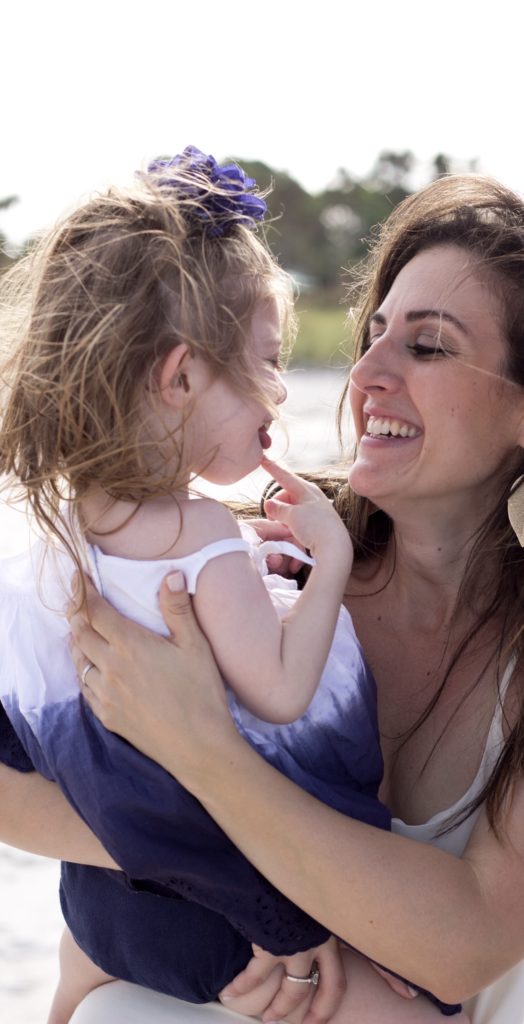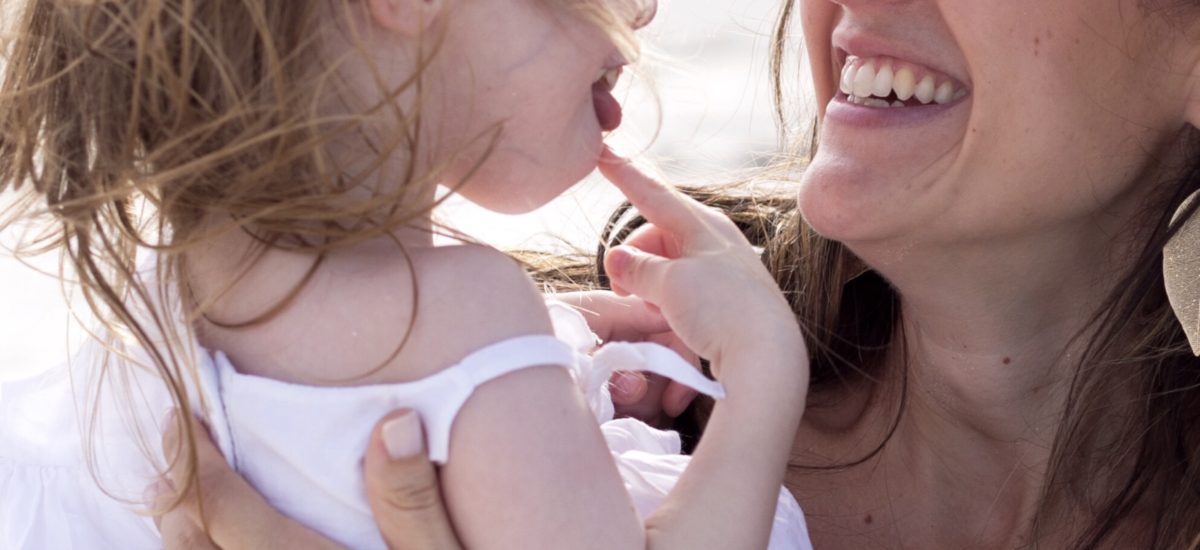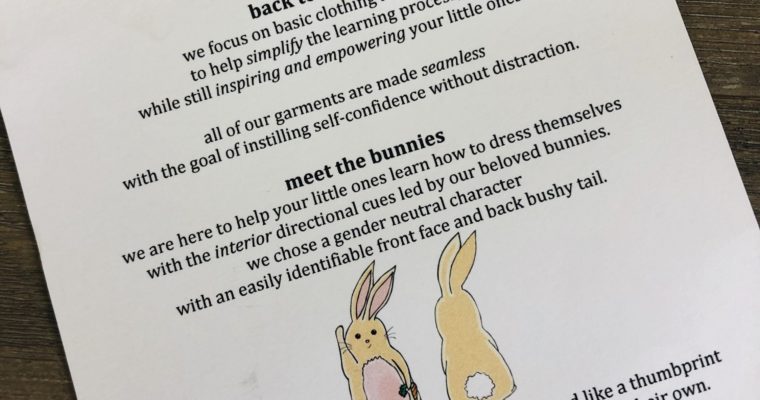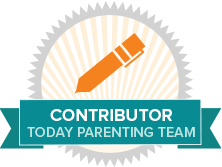This post may contain affiliate links. Please read our Disclosure Policy for details.
Our daughter has a noticeable disability. She has severe Childhood Apraxia of Speech. Her speech is unintelligible to most, but the three of us understand what she is saying. We have been in speech therapy, among other therapies, since she was 10 months old. She works her tail off every single day, whether it be in therapy or at home with us. She is trying so hard to speak. She has a full vocabulary, 100% receptive language, she can make intonations and inflections, and her vocalizations have syllables. She has a voice, but she can’t say the words intelligibly. For the last few years, we have gotten away without many people noticing her speech disorder, primarily because her small stature masks her actual age. Unfortunately, we’re at the point where it’s more noticeable to more people, especially young people.

Before we moved across the state, the twins were in a preschool that they had been attending since they were two years old. Most of their classmates had been with them since that young age and they had grown together and formed bonds. Everyone was friends with each other and our daughter was equally loved by her peers. She even developed a special friendship with one of the little girls in her class. I had never seen her interact so closely with another friend; it had been mostly parallel play up until this point. She even let her friend hold her hand-something she never lets anyone other than Mommy or Daddy do. It was such a beautiful sight to witness young children and all of their innocence, playing together without judgment.
When we moved across the state and upended the twins’ world, I was so nervous about how they would adjust to everything. It was a huge change: moving from a house to an apartment, a new school, new friends, a new city, new therapies, and new routines. We enrolled them in a new school, with values similar to their previous school, and met extensively with the Head of Schools to discuss our concerns about our daughter and her special needs. We knew that our twins would transition seamlessly to their new environment, especially because it was so colorful and had so many new toys-what preschooler doesn’t love toys and other fun stimuli in a new environment?! The school welcomed us and our children with open arms, and the Head of Schools arranged for a team of people to help both our daughter and her new teachers acclimate to each other. The twins came home from school so excited about their new school and our son was already telling us the names of all of his new friends. Phew. I was way more nervous about their transition than necessary.
As we settled into our new life and learned about and participated in all of the wonderful things the school does, I was told that my turn was coming up to be the class “Mystery Reader.” I scoured through the class blog to determine which books were already read so as to avoid a repeat story, and ultimately decided on a few Llama Llama Red Pajama books-I was stoked because I had just gotten a new sweater with a llama on it! Yes, it does get cold in Florida-once a year, for about a day. I also decided to bring a third book so that I could help the kids understand our daughter a little more-the Mama Bear in me was so worried about her being accepted. I recently added a new book to our repertoire that I snagged on Amazon: We’re Different, We’re the Same; an adorable Sesame Street book that discusses differences among individuals, but highlights shared similarities without judgment. My goal was to encourage inclusion.
At the tender age of three and four, young children become increasingly curious about their surroundings and others. Their questions are purely for learning purposes as they are sponges soaking in their environments and are not forming criticisms or judgments.
At the start of this school year in our previous school, I attended parents’ night and decided to introduce myself and share that our daughter has a speech disorder and encouraged the parents to explain to their children that she is still learning how to speak, as everyone learns how to talk at different times. I advised that this is how we handle questions and curiosity surrounding our daughter when asked. Many of the parents thanked me for providing a comfortable and age appropriate way to explain to their children why one of their classmates may seem a little bit different. Because we transitioned to a new school in the middle of the school year, I did not have the same opportunity to meet the parents of our new classmates and give a proper introduction and explanation. So, I relied on a foolproof and fail-safe method: Sesame Street. I read the book to the class, with a few improvisations regarding speech, of course, and it was a success! During the many times I was at the school for events or activities, I always saw the twins’ classmates engaging and interacting with our daughter, inviting her to hold their hands or participate in their activity. She chose to participate in her own way, and that was just fine. The teachers even told me that many of the girls in the class have taken on a mothering role by insisting on helping our daughter by carrying her lunch box or water bottle to and from the cafeteria if it’s too cumbersome for her. My heart was full with love and admiration, both for these children and for their parents who are doing an outstanding job of raising kind-hearted and inclusive children.
I know the day is coming sooner rather than later, when someone is going to say something hurtful either to or about our daughter. I have been preparing myself and trying to thicken my already thick skin. I have been casually and surreptitiously shaping our son to handle any sort of insult that may be directed at his twin sister so that he can be her voice and help her to stand up to potential bullies if she can’t do it herself or if my husband or I are not there to intervene. I’m an honest and real person, so let’s be real: bullies exist. I think that society as a whole is striving to extinguish and eradicate bullying and moving in the right direction, but there will always be the ignorant few. So in the meantime, I’m arming my children with a powerful way to approach a situation where a disability is used as fodder or for purposes of bullying or belittling the disabled individual.
I am teaching my children to ask ‘why?’.
When the bully or insulting individual mocks a disability, ask the person, “why did you just call me that name?” and keep pressing them. “Why do you think it’s funny that my speech is different than yours?” “Why is it funny that the way I look/speak is out of my control?” “Why do you enjoy hurting others?” If your children are older and you want to encourage them to delve further, go past the why and ask, “does it make you feel good to hurt my feelings?” “Do you feel better about yourself having put me down?” “What are you trying to accomplish by making fun of my disability?” “Have you accomplished it?” Chances are the person will either be ashamed or will have already retreated and/or left the situation. I always encourage my children to put themselves in someone else’s shoes so that they can see what the other person is feeling. It’s a humbling experience and an invaluable lesson.
You see, I’ve learned from my own personal experiences that when you stand up to a bully in a strong but non-confrontational way, they will back down. I had scoliosis when I was a child, which required wearing a bulky and cumbersome back brace for six years. I was called all sorts of names like ‘Quasimoto’ and ‘hunchback’ and made fun of. I would come home unaware that there were chalk imprints on my clothing in the shape of the erasers used on the blackboard because a few of my male classmates would throw the eraser at me and I wouldn’t feel it because of my ‘turtle shell.’ It caused me to cower and become reclusive and shy. It wasn’t until I was an adult and armed with confidence that I was able to understand how to handle a situation when a person was trying to bully or overpower me. Whether it’s business dealings, in social interactions or even those ubiquitous social media trolls, if you call the person out on their behavior in a polite yet focused way, they will back down and retreat. Look at the overall situation. Did the person get emotional and stray from the focus of the interaction? Did they resort to name calling? Did they become irrational and immature in communicating? Remove the excess and hone in on the facts-get to the ‘why’ to resolve the situation. Asking ‘why’ will force everyone to self-reflect and realize the errs of their ways. I believe our future generation will be the change we are working so hard to inject into them. Teaching your children to be kind and compassionate will pay dividends throughout their lifetime.
As an Amazon Affiliate, I earn from qualifying purchases.
© Copyright 2018 Twinstant Gratification, LLC
Tamar Blazer is an attorney-turned-twin mom, with a passion for her family, friends, writing, good food, home decor and laughing. When she’s not lamenting on her lack of sleep, you can find her doing one of the too many projects she likes to take on, usually with a twin on either side.










I love this post. Teaching your kids how to gracefully handle bullies and hurtful comments, even if unintentional, is so important. This is hard for most adults to do. Fantastic job!